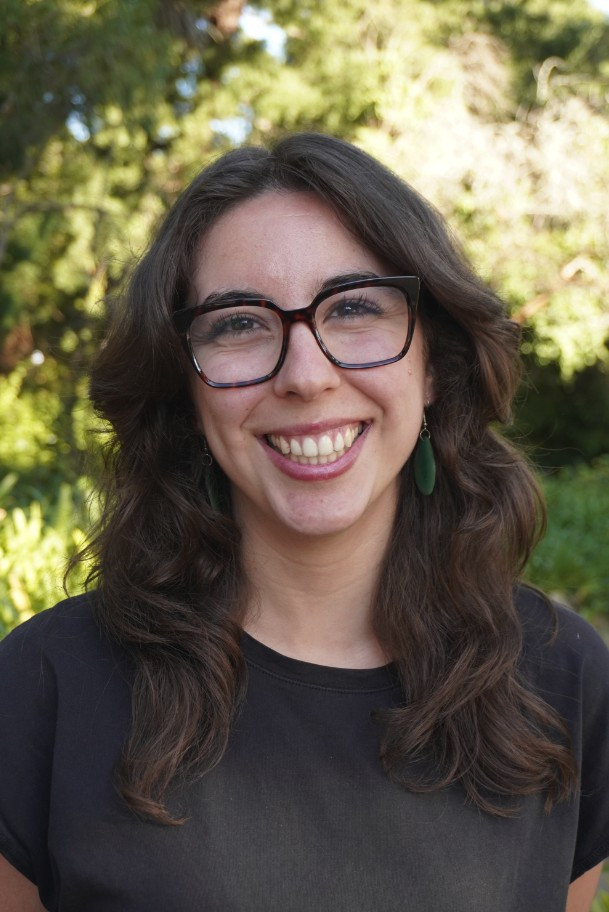
Milou Dirkx is Lead Network & Media Programmes at Clean Energy Wire.
Blowing the whistle: Climate wrongdoings exposed

Clean Energy Wire: Why is an organisation like Climate Whistleblowers needed?
Maria Garriga Zamora: The climate crisis is accelerating, and more and more people around the world are starting to experience its effects first-hand. We think transparency is key at a moment like this and whistleblowing is a powerful tool. It helps bring hidden issues to light, often with the help of journalists, by sharing real stories from people who have seen how things work from the inside. Many of these insiders aren’t witnessing outright corruption or dramatic wrongdoing. More often, it is a pattern of negligence or the slow erosion of standards.
Climate Whistleblowers was founded two years ago by Gabriel Bourdon-Fattal and Henri Thulliez, who have extensive experience in whistleblower protection as they have been running the Platform to Protect Whistleblowers in Africa (PPLAAF) since 2017.
The organisation provides comprehensive support to those who take the risk of speaking out. This includes legal advice and representation to help whistleblowers navigate complex systems and protect themselves against retaliation; psychological support to deal with the emotional toll of isolation and pressure; and media assistance to ensure their disclosures reach the right audiences safely and effectively. In some instances, we also help with physical protection measures, such as relocation.
For those on the inside, it can be hard to question the system you are part of, especially when speaking up puts your job or reputation at risk. But many feel a growing sense of cognitive dissonance: a tension between staying silent and needing to act. Whistleblowing can offer a way forward, a way to push for change when business as usual just is not good enough any more.
"We want people to start questioning, and ultimately to redefine what is considered normal in the face of the climate crisis."
Can you talk more about your impact?
If properly supported and protected, climate whistleblowers can trigger investigations, reforms, and greater public accountability.
For us, impact means reaching the right audience, especially the communities or institutions where the wrongdoing took place, and sparking conversations that can lead to actual reform. In that sense, we aim to shake up the industry. We want people to start questioning, and ultimately to redefine what is considered normal in the face of the climate crisis.
A good example is our GreenFakes investigation, which explored the role of the environmental auditing sector in enabling destructive projects. Once the story broke, we immediately received responses from insiders in the auditing industry who had seen the same schemes and patterns but never felt safe enough to speak up. Building on this momentum, our partners at French news medium Mediapart published a follow-up story revealing nearly identical practices in the ocean auditing sector. That kind of ripple effect is a powerful form of impact.
We saw a similar case with Polina Zabrodskaya, a former creative partner in a major agency who spoke out against greenwashing in ad campaigns for Mars. After raising concerns about misleading environmental claims, she faced harassment and retaliation. Her case has since sparked a broader debate on greenwashing practices in the advertising industry.
What story stayed with you the most?
One story that has stayed with us is that of Amadou Traoré. His courage and deep sense of responsibility leave an impression on everyone who hears what he went through. Amadou was working as a translator when he uncovered massive illegal trafficking in Mali of rosewood, a rare and protected tree species being looted and exported through corrupt networks involving public and private actors.
What made his case especially powerful was the personal risk he took to speak out. He knew that coming forward could cost him everything, but he chose to act anyway. What impressed our team most was his profound sense of justice and respect for nature. You could feel his indignation in the face of injustice, and how deeply he cared about his country and its future generations.
Amadou has become an environmental activist and advocate, continuing to speak out publicly against deforestation and corruption in the timber trade. His testimony helped expose a broader pattern of exploitation that extended far beyond Mali, and it has had a real impact in pushing for greater transparency and accountability.
"More than improving the legal framework, it truly takes a village to protect a whistleblower."
What can societies do to better protect whistleblowers?
First, we need to shift the narrative around whistleblowing. Too often, it's still seen as betrayal, as “snitching”, rather than an act of courage. For better protection we need to build a culture where speaking up is actively encouraged and safeguarded. More than improving the legal framework, it truly takes a village to protect a whistleblower: their families, journalists, NGOs, legal advisors, and even allies within companies all play a crucial role in creating safe conditions.
Legally, there’s a lot that countries can learn from each other. France, for example, has implemented some of the most comprehensive definitions of what a whistleblower is, thanks in part to sustained advocacy and a recognition of the public interest these individuals serve. But even in countries with solid frameworks, climate whistleblowing remains a grey area.
Climate whistleblowing as a specific category is still relatively new and often misunderstood. Many of these whistleblowers don’t fit neatly into existing legal protection schemes. That is why we believe it is important to push for explicit recognition of climate and environmental whistleblowers in national legislation, as well as in international frameworks.
What tips do you have for journalists who want to work with your organisation?
Our biggest piece of advice is to get in touch with us early on, already before the whistle is blown. Too often, we see situations where the whistleblower’s safety is compromised simply because the risk was not assessed beforehand. The right precautions need to be taken and you need more than good intentions to protect people. Oftentimes, even the whistleblowers themselves don’t fully understand the risks they face. If you involve us early, we can help build a strategy that both protects the source and maximises the impact of the story.
It is also important to remember that a whistleblower is not just another source. They are human beings who often take huge professional and personal risks for the sake of truth and public interest. Their lives can change overnight. As a journalist, recognising that human element and approaching it with care makes a big difference.
By working with Climate Whistleblowers to protect your sources, you can focus on investigating and writing a powerful story, making it more likely for other whistleblowers to talk to you in the future.
